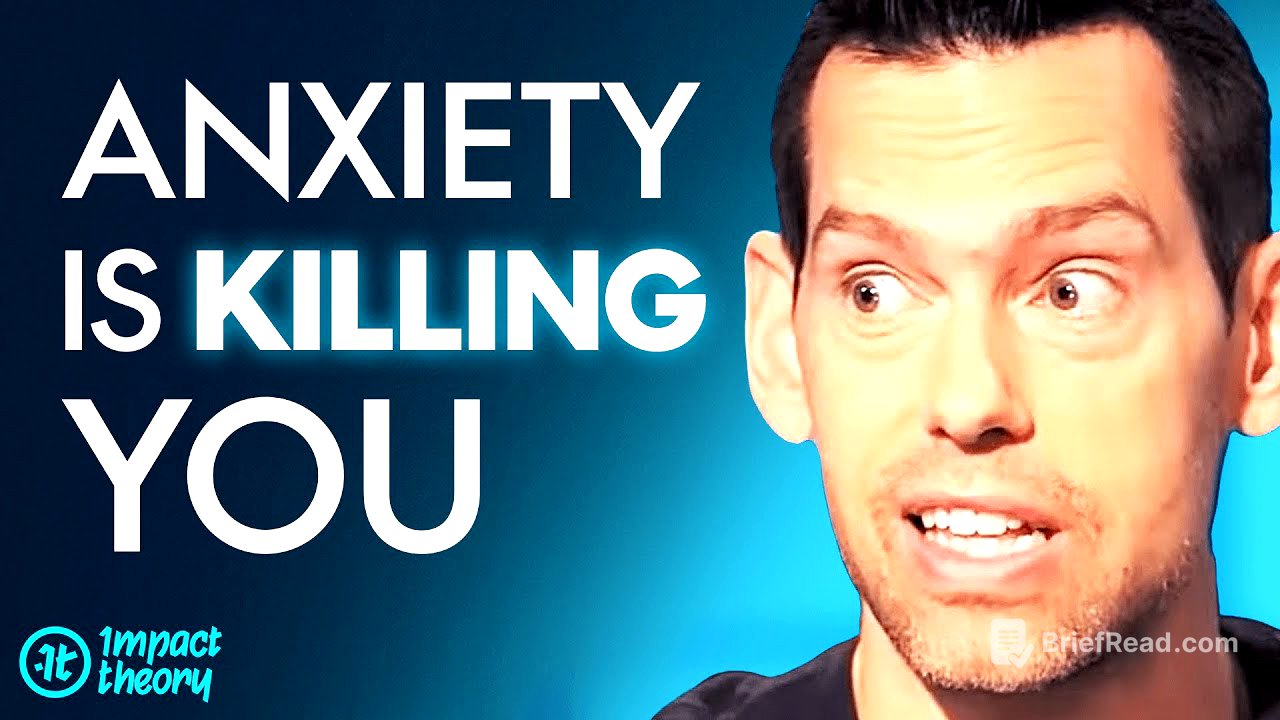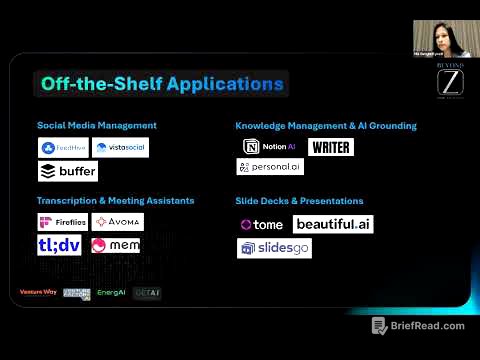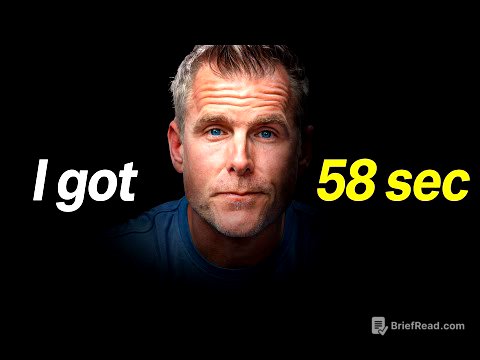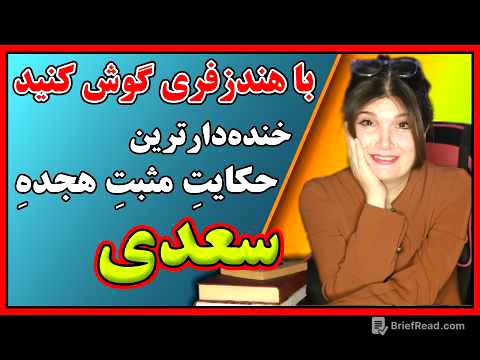TLDR;
This video discusses anxiety and how to overcome it. Tom Bilyeu shares his personal experience with anxiety and provides practical strategies for managing it. He emphasizes the importance of recognizing and interrupting negative thought patterns, practicing meditation, and focusing on personal growth.
- Anxiety is a result of worrying about the future and rehearsing failure.
- Meditation, particularly diaphragmatic breathing, can help regulate neurochemistry and reduce anxiety.
- Focus on personal growth and empowering thoughts to overcome social anxiety.
- Anxiety can be a motivator for taking things seriously and preparing for challenges.
Understanding Anxiety [0:00]
Tom Bilyeu begins by explaining that anxiety is a common experience, and he shares his own struggles with it. He describes how anxiety can be debilitating and how it can affect cognitive function. He emphasizes that overcoming anxiety is a worthwhile endeavor that can lead to a more fulfilling life.
Overcoming Everyday Anxiety [2:29]
Tom addresses the issue of feeling overwhelmed by everyday tasks and the anxiety that can arise from comparing oneself to others. He explains that anxiety is essentially living in a future state and worrying about things that haven't happened. He encourages viewers to focus on personal growth and to replace negative thoughts with empowering ones. He emphasizes that the brain is wired to reinforce patterns, so it's important to interrupt negative thought patterns and replace them with positive ones.
Managing Physical Effects of Anxiety [9:49]
Tom discusses the physical effects of anxiety, such as adrenaline surges. He highlights the importance of meditation, particularly diaphragmatic breathing, as a powerful tool for managing these physical symptoms. He explains that meditation allows for conscious control over neurochemistry and can help shift the body from a fight-or-flight state to a rest-and-digest state. He recommends practicing diaphragmatic breathing regularly to experience its benefits.
Conquering Social Anxiety [18:03]
Tom addresses social anxiety and how to overcome it. He emphasizes that social anxiety is often rooted in catastrophizing about future events. He encourages viewers to focus on their goals and to take action despite their anxiety. He reminds viewers that they can get better at anything with practice and that others' opinions should not hold them back from pursuing their goals.
The Root of Anxiety [22:17]
Tom explores the origins of anxiety and how it can become a generalized anxiety disorder. He shares a personal anecdote about how even seemingly insignificant events can trigger anxiety when the brain is conditioned to worry about the unknown. He emphasizes that anxiety is a physiological response to worrying about the future and that it's important to stop rehearsing failure and start rehearsing success.
Harnessing Anxiety [27:48]
Tom discusses how anxiety can be a motivator and how to use it to our advantage. He explains that mild anxiety can be helpful in taking things seriously and preparing for challenges. He encourages viewers to embrace anxiety as a friend and to use it as a catalyst for growth. He emphasizes the importance of interrupting negative thought patterns and focusing on positive outcomes.
Breaking the Anxiety Cycle [29:39]
Tom addresses the question of whether the body can become so accustomed to anxiety that even when the mind is relaxed, the body remains tense. He explains that this is a common symptom of generalized anxiety disorder and that it's a result of the brain being wired to slip into a negative mindset. He encourages viewers to practice cognitive behavioral therapy (CBT) to interrupt negative thought patterns and to focus on personal growth. He emphasizes that the brain can be rewired through repetition and that it's important to invest time and energy in empowering thoughts and actions.









